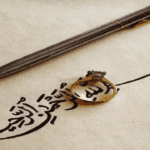In Islamic traditions, the practice of reciting a supplication (Dua) after the Azan holds profound spiritual significance. This post-Azan Dua serves as a sacred moment to connect with the divine and seek blessings. Understanding its essence and significance is pivotal for every believer.
Contents
Azan Ke Baad Ki Dua
اللَّهُمَّ رَبَّ هَذِهِ الدَّعْوَةِ التَّامَّةِ وَالصَّلَاةِ الْقَائِمَةِ آتِ مُحَمَّدًا الْوَسِيلَةَ وَالْفَضِيلَةَ وَابْعَثْهُ مَقَامًا مَحْمُودًا الَّذِي وَعَدْتَهُ
Transliteration: “Allahumma rabba hadhihid da’watit tammah, wassalatil qaimah, ati Muhammadan al-wasilata wal-fadhilah, wab’athhu maqaman mahmudan illathi wa’adtah, innaka la tukhliful mi’ad.”
English Translation: “O Allah, the Lord of this complete call and the established prayer, grant Muhammad the means and the exalted position, and raise him to the praised station as You have promised. Surely, You do not fail in Your promise.”
.ای اللہ! اس مکمل پکار اور قائم نماز کے پروردگار! محمد صلی اللہ علیہ وسلم کو وسیلہ، فضیلت اور بلند درجہ عطا فرما، اور انہیں جس درجہ کا وعدہ تو نے کیا ہے، محمود مقام میں بلند کر دے”
This supplication, known as Dua after Azan, acknowledges the significance of Prophet Muhammad (peace be upon him) and seeks blessings from Allah upon him. It also implores Allah to grant the Prophet the praised station (Al-Maqam Al-Mahmoud), a promised elevated status in the Hereafter. Reciting this Dua after the Azan is a recommended practice and is often silently recited by individuals after hearing the call to prayer.
According to Hadith from Al Bukhari we find the dua after hearing adhan:
Reported by Jabir bin Abdullah, Allah’s Messenger (peace be upon him) conveyed:
“Whoever, upon hearing the Adhan, says: ‘Oh Allah, Lord of this complete call and the established prayer, grant Muhammad the privilege of intercession and honor, and raise him to the praised position in Paradise as promised,’ my intercession for that person will be permitted on the Day of Resurrection.” (Sahih Al-Bukhari 614)

The Spiritual Importance
Importance in Islamic Traditions
The Azan marks the call to prayer, inviting believers to pause from their worldly engagements and turn towards Allah. Following this call with a Dua amplifies the spiritual sanctity of the moment.
Belief and Practice
The practice of reciting a specific Dua after the Azan is rooted in deep belief and upheld as a revered tradition among Muslims worldwide.
The Meaning and Purpose
Significance of Post-Azan Dua
The Dua after Azan signifies the transition from the external call of prayer to the internal connection with the divine, offering a moment of reflection and submission.
Connecting with the Divine
It serves as a bridge between the mundane world and the sacred realm, allowing individuals to seek blessings, guidance, and protection from Allah.
Historical Context and Teachings
Hadiths and Quranic References
The significance of reciting Dua after Azan finds mention in various Hadiths and holds references in the Quran, reinforcing its spiritual importance.
Insights from Scholars
Renowned Islamic scholars have elaborated on the significance of this practice, providing valuable insights into its historical context and deeper meanings.
This is just the beginning of a comprehensive article exploring the significance, practice, and benefits of reciting Dua after Azan. Each section would delve deeper into its respective topic, providing insights, guidance, and encouragement for embracing this spiritually enriching practice.
When and How to Recite
Recommended Times
The ideal moments for reciting the Dua after Azan encompass the immediate period post the call to prayer. It’s a practice highly encouraged right after the completion of the Azan.
Etiquette and Manners
Observing proper etiquette while reciting the Dua involves facing the Qibla, raising hands in supplication, and maintaining a state of humility and sincerity.
Unpacking the Elements of Post-Azan Dua
The Structure of the Dua
The Dua comprises phrases glorifying Allah, seeking blessings upon the Prophet Muhammad, and offering prayers for oneself and the entire Muslim community.
Transliteration and Translation
Understanding the Dua’s text in Arabic, its transliteration, and translation into one’s native language allows for a deeper connection and comprehension.
Interpreting the Dua’s Essence
Beyond the literal meaning, the essence lies in personal reflection, aligning intentions with the profound sentiments expressed in the Dua.
The Spiritual Impact and Benefits
Spiritual Benefits of Recitation
Regular recitation of the Dua after Azan enhances spiritual consciousness, fostering a deeper connection with one’s faith and strengthening devotion.
The Blessings and Rewards
Believers anticipate both immediate and long-term blessings, seeking spiritual fulfillment in this life and the promise of rewards in the Hereafter.
Incorporating Dua after Azan into Daily Life
Practical Ways to Embrace the Practice
Integrating this practice into daily routines fosters spiritual discipline, nurturing a constant connection with Allah throughout the day.
Overcoming Challenges
Addressing misconceptions or doubts about the practice encourages consistent engagement, overcoming barriers on the path to spiritual growth.
Conclusion
The significance of Dua after Azan extends far beyond a mere ritual; it encapsulates a moment of spiritual elevation, connection, and gratitude. Embracing this practice enriches one’s spiritual journey, nurturing a deeper bond with faith and divine blessings.
Unique FAQs:
Is there a specific Dua to recite after Azan?
Yes, various Dua are recommended after the Azan, each carrying its significance and blessings.
Can I recite the Dua in my native language?
While the Arabic text holds spiritual significance, translating it into one’s native language for understanding is encouraged.
Is there a specific time limit to recite the Dua after Azan?
The immediate moments post the Azan are highly recommended, yet there isn’t a strict time limit.
Can children recite the Dua after Azan?
Absolutely, encouraging children to learn and recite the Dua fosters early spiritual connections.
What if I miss reciting the Dua after Azan?
While it’s recommended to recite immediately after Azan, any moment of remembrance and supplication is valuable.










